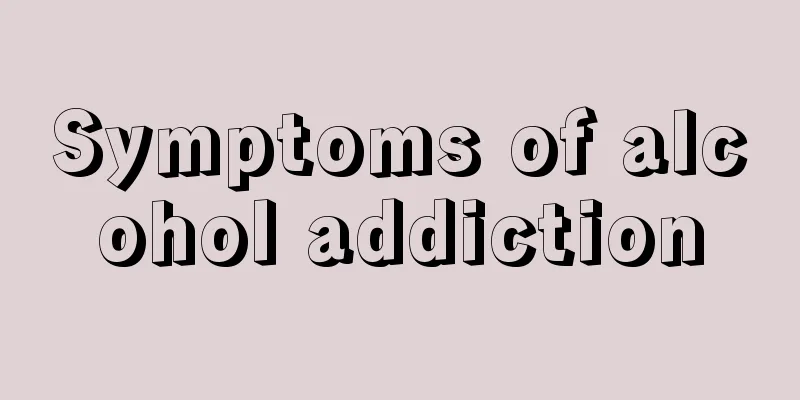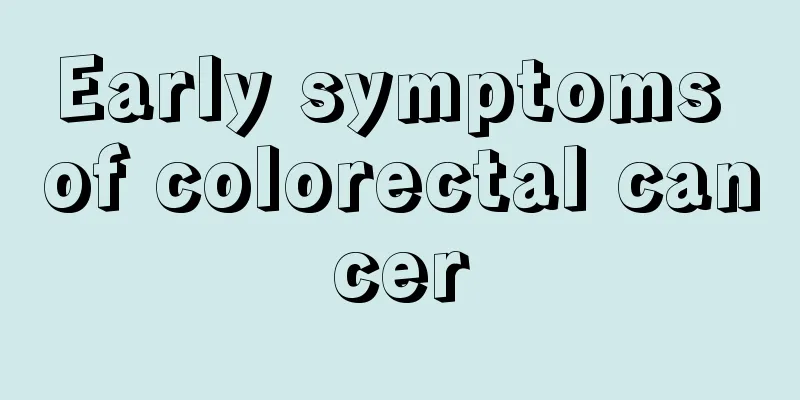Symptoms of alcohol addiction

|
Although alcohol has become a popular drink now, due to its effect of paralyzing the brain nerves, many people choose to drink excessively in pursuit of the pleasure after the paralysis. However, alcohol is not a bad thing. Drinking in moderation can be good for your health, but excessive consumption can lead to dependence of nerve cells, which is what we often call alcohol addiction. So what are the specific manifestations of alcohol addiction? If you sincerely want to quit drinking but find that you cannot quit completely; or if you have difficulty controlling the amount of alcohol you drink and always get drunk; or if you don’t like the taste of alcohol and drink heavily in pursuit of the intoxicated and erratic feeling it brings. Then you may be suffering from alcohol dependence. Alcohol dependence does not necessarily mean drinking every day. Main manifestations 1. Alcohol dependence syndrome is a special psychological and physiological state caused by repeated drinking. The patient has a craving for alcohol and a compulsive need to drink alcohol, which may occur continuously or intermittently. If drinking is stopped, psychological and life withdrawal symptoms will appear. The syndrome has the following clinical characteristics: ① An uncontrollable craving for alcohol; ② A fixed drinking pattern, in which the patient must drink at fixed times regardless of the occasion in order to avoid or relieve withdrawal symptoms; ③ Drinking has become the center of all activities, to the point of significantly affecting work, family life, and social activities; ④ Tolerance gradually increases, and the patient needs to continuously increase the amount of alcohol consumed in order to achieve the effects achieved in the early stages of drinking or to prevent the occurrence of physiological withdrawal symptoms; ⑤ Withdrawal syndrome recurs. If the patient reduces the amount of alcohol consumed or prolongs the interval between drinking, the alcohol concentration in the body will drop, resulting in withdrawal syndrome. The most common symptoms are tremors in the hands, feet, limbs and trunk, ataxia, irritability, and easy startle reaction; sweating, nausea and vomiting may also be seen. 2. Delirium tremens: After long-term drinking, if the patient suddenly reduces the amount of alcohol or stops drinking, he or she may quickly develop a brief loss of consciousness. During an attack, the patient is unconscious, has confusion about time and place, and has vivid and distinct hallucinations and delusions of persecution; thus, he or she may manifest extreme fear, anxiety, or impulsive behavior. At the same time, the patient may experience coarse tremors in the limbs and ataxia, and is often accompanied by fever, sweating, tachycardia, increased blood pressure and dilated pupils. In severe cases, it can be life-threatening. The duration of delirium tremens varies, usually 3 to 5 days. After recovery, the patient may partially or completely forget the course of the illness. 3. Alcoholic hallucinations, which is a hallucination state caused by long-term drinking. The patient will experience a large number of vivid hallucinations, mainly hallucinations, within 1 to 2 days after suddenly reducing or stopping drinking. Primitive visual hallucinations and commentary and commanding auditory hallucinations are common. On the basis of hallucinations, fragmentary delusions and corresponding tension, fear or depression may also occur. During the illness, the patient's consciousness was clear, and there were no obvious symptoms of psychomotor excitement and autonomic hyperfunction. 4. Alcoholic delusion: the patient experiences jealousy delusions and persecution delusions while being conscious, with the former being more common in clinical practice. The patient unreasonably suspects his or her spouse of infidelity, to which he or she often reacts with rage, which may also lead to attacks on the person of suspicion or the spouse, sometimes resulting in murder. In the past, it was also called alcoholic jealousy. 5. Alcoholic encephalopathy This is the most serious psychiatric state of chronic alcoholism, and is the result of organic brain damage caused by long-term and heavy drinking. The main clinical features are delirium, memory loss, dementia and personality changes, and most patients cannot fully recover to normal. |
<<: Is it good to be able to drink without getting red in the face?
>>: What are the hazards of plastics when exposed to high temperatures
Recommend
Washing down jackets in a drum washing machine
Many women like summer because the arrival of sum...
How to choose the most famous hospital for skin cancer
The incidence of skin cancer in my country is ver...
How to close the everted lower lip
Not everyone has a perfect lip shape. Many people...
Briefly describe the common symptoms of bone cancer
Bone cancer is also very common in our lives. If ...
Causes of reflux esophagitis after esophageal cancer surgery
Although surgical treatment is the most effective...
Tips on what to do if you don't have a bowel movement
A normal human body defecates one to two times a ...
Does sunscreen prevent skin cancer?
When going out in the summer, many girls will app...
What is the situation with the white yolk of the egg
Normally, the yolk of an egg is yellow, but for s...
Experts analyze the causes of melanoma
With the increasing incidence of melanoma, more a...
Are mosquito coils generally harmful to the fetus?
Summer is the time when mosquitoes are rampant, a...
What to do if your lips get inflamed? Three ways to solve it
We all know that in this dry spring, people are p...
What should I do if I feel uncomfortable in my stomach and always want to vomit
The stomach is an important organ in the human bo...
The significance of thyroid ect examination
Many people undergo a thyroid ect test during the...
What syrup is good for relieving cough and reducing phlegm
Coughing is a very common clinical problem that i...
Tips for removing spots from the corners of the eyes
Many women want their faces to be beautiful witho...









